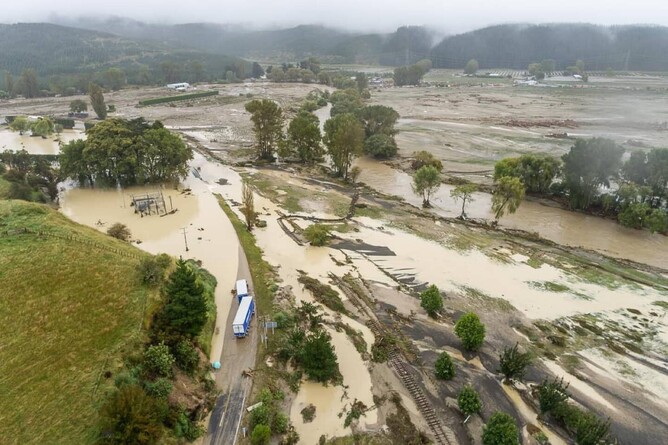Over recent weeks it has been impossible to watch the news or read a newspaper without seeing the impact of disasters around the world. Whether it be earthquakes in Turkey and Syria, floods in Auckland, or cyclone devastation on the east coast of the North Island, the impact is far reaching. Lives have been lost, property has been destroyed, livelihoods have been lost and for many, their lives have been changed forever. As I think about these disasters, two questions come to mind,
How do I understand the suffering that these disasters cause?
How do I respond to the disasters that I see in world?
Understanding the Suffering
When I think about human suffering and our response as Christians, I immediately think of Job. The book of Job is a powerful exploration of the nature of suffering and how we as human's response. It teaches us about the character of God and how we react to adversity. Here are some ways on how we can think about suffering, both in our own lives, and in the lives of others.
Trust in God's sovereignty. Job's response to his trials was to trust in the sovereignty of God. Despite not understanding why he was suffering, Job acknowledged that God was in control. Job trusts God's absolute power and wisdom even when he doesn't understand God's purposes. Job's questioning of God's ways was not a lack of faith, but a search for understanding.
Persevere in faith. Job's faith was tested to the limit, but he did not give up on God. He continued to believe in God's goodness, even when his friends accused him of wrongdoing and God seemed distant. James reminds us,
"Blessed is the one who perseveres under trial because, having stood the test, that person will receive the crown of life that the Lord has promised to those who love him" (James 1:12).
Despite his intense pain and confusion, Job remained faithful to God and refused to curse Him or abandon his faith. Job’s faith remained strong, even in adversity.
Find comfort in community. Although Job's friends were not always helpful, they were present with him in his suffering. They listened to his complaints, offered their perspectives, and prayed for him. As the apostle Paul writes, "Carry each other's burdens, and in this way you will fulfil the law of Christ" (Galatians 6:2). We can find comfort in the support of our Christian community in times of hardship. Those in our community may not understand all that we are going through, but they are still there to journey alongside us.
Responding to Disaster
When it comes to responding to disasters, I think that our response as Christians involves a combination of spiritual and practical actions. Biblically, the following passages come to mind.
Love Your Neighbour. Jesus is clear that Christians are to love and care for others. We are to be characterised by having love for other people. Loving our neighbour is the great and second commandment!
“Teacher, which is the great commandment in the Law?” And he said to him, “You shall love the Lord your God with all your heart and with all your soul and with all your mind. This is the great and first commandment. And a second is like it: You shall love your neighbor as yourself. (Matt 27:36-39)
Love for those are around us is essential for those of us that are Christians. We may not understand what they are going through and we may struggle to know what is the best way to support them, but we can love them.
Support Others. The Apostle Paul encouraged the believers in Galatia to "Bear one another's burdens, and so fulfil the law of Christ" (Galatians 6:2). Christians are called to walk alongside those in need, support one another and help carry each other's burdens in times of difficulty. When we walk alongside others, we can begin to see the world through their eyes. When we do this, we are better able to meet their needs and offer them hope.
Help Those in Need. John reminds us to love in our actions, "Let us not love in word or talk but in deed and in truth" (1 John 3:18). This verse emphasizes the importance of taking action to show love and care for others. True religion is caring for the orphans, widows, and those in need.
There are a number of practical ways that we can respond to disasters including the following:
Pray. Christians can pray for those affected by the disaster, including the victims, their families, the first responders, relief workers, and for those providing assistance as communities rebuild after the devastation.
Give. Christians can donate money, food, clothing, and other resources to organisations that are providing aid to disaster victims.
Volunteer. Christians can volunteer their time and skills to assist with relief efforts, such as helping to distribute food and supplies, helping in the clean-up, offering emotional support to those who have been traumatized by the disaster.
Disasters provide unique opportunities for Christians to live out their faith by demonstrating compassion, generosity, and sacrificial love. We never like to see disasters in our news, but as Christians our response to disaster is an opportunity to show compassion and love to those affected by providing tangible assistance and emotional and spiritual support.

